ILO and Vietnam agree on new employment cooperation framework
At a ceremony in Hanoi on March 28, the MoU on the Decent Work Country Programme was signed by Minister of Labour, Invalids, and Social Affairs Dao Ngoc Dung, ILO Vietnam director Ingrid Christensen, and the leaders of key social partners.
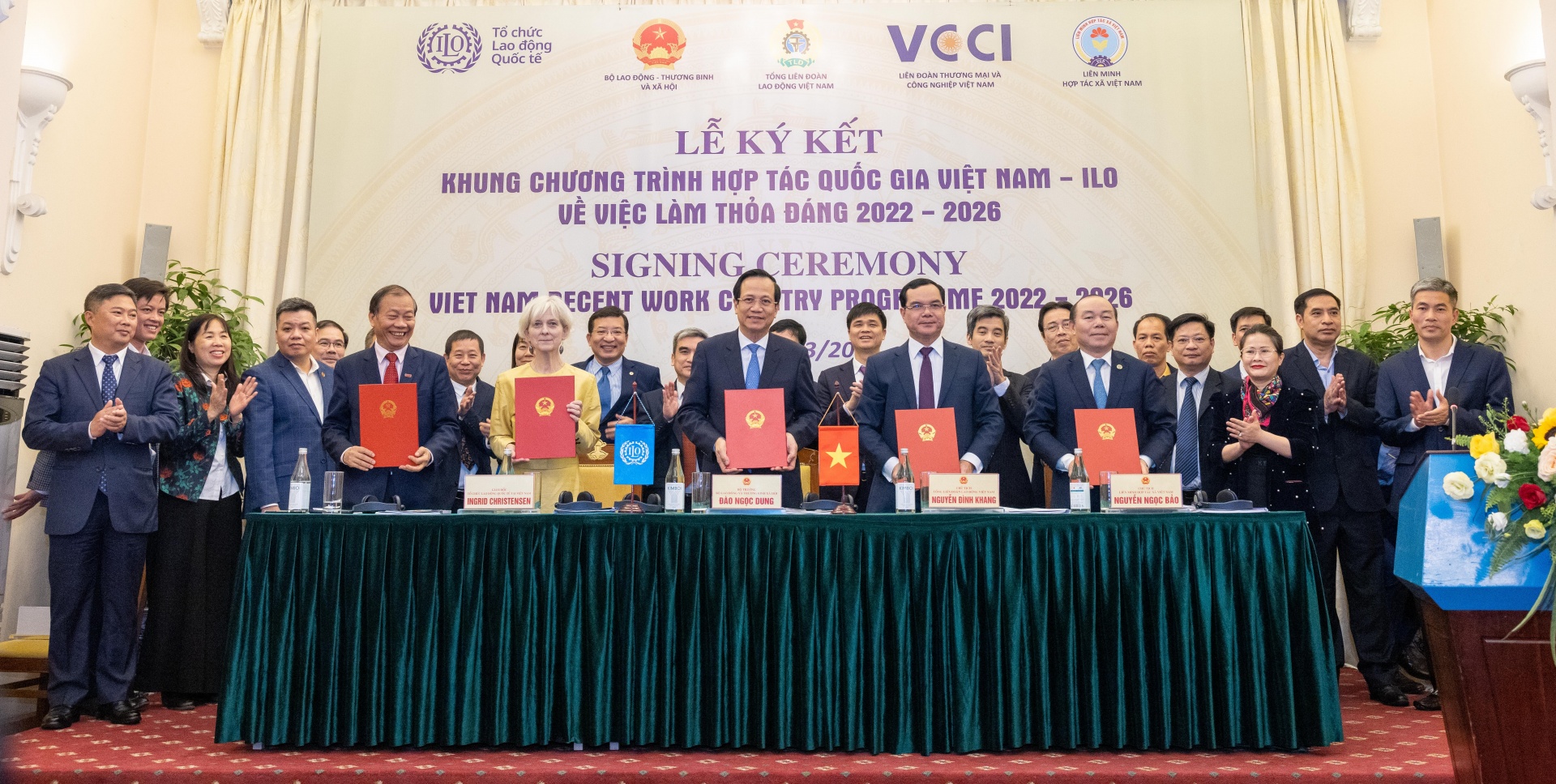 |
| The document was endorsed by representatives of the government, worker and employer organisations, and ILO Vietnam |
The representatives all agreed to set out three priorities by 2026. People in Vietnam, especially those at risk of being left behind, will benefit equitably from sustainable, inclusive, gender-responsive, disability-sensitive, and affordable social services and social protection systems that are high quality.
The aim is to move them further out of poverty in all its dimensions and empower them to reach their full potential, contributing to a more just, safe, and inclusive society.
This is the fourth Decent Work Country Programme for Vietnam (with the previous one covering the 2017-2021 period) since it rejoined the ILO in 1992. The first collaboration between the ILO and Vietnam was to assist the country in developing its Labour Code in 1994 when the nation had to form a new legal framework to govern the labour market as part of the economic reforms in the 1980s.
Minister Dung said, "Throughout the past three cycles, the ILO has worked alongside Vietnam's tripartite partners to effectively implement the Decent Work Programme, contributing to the promotion of equity and social progress."
The minister suggested the ILO and its social partners develop an implementation plan for the new phase of the initiative. Priority should be given to the continued support for labour law reforms, the development of social policies for the 2023-2030 period, and harmonious industrial relations within enterprises.
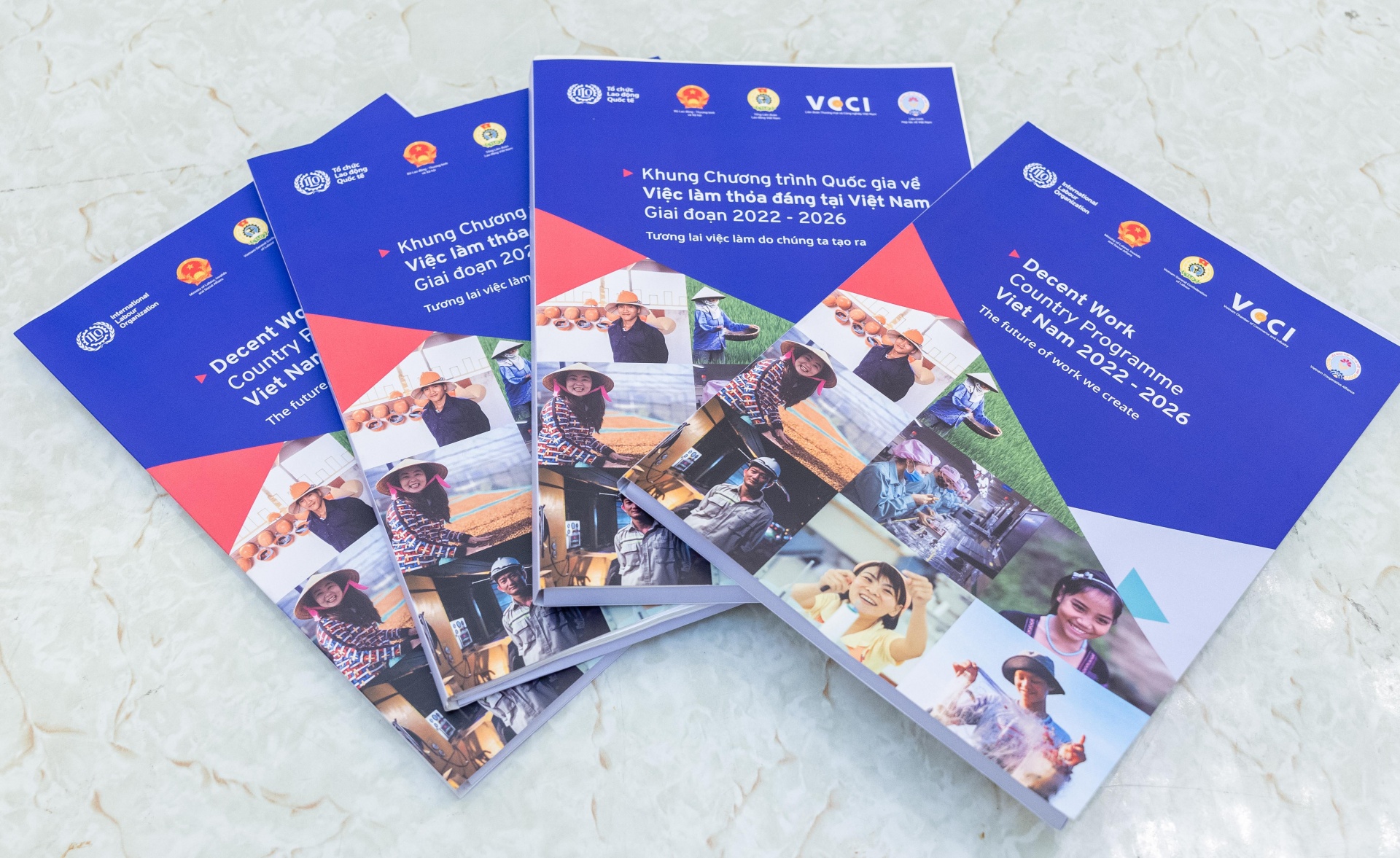 |
The 2022-2026 drive translates the ILO’s core mandate of advancing opportunities for all to obtain fair and productive work with freedom, equity, security, and human dignity.
Underlining the Vietnam General Confederation of Labour's (VGCL) role as representing and protecting the rights and interests of workers, its president Nguyen Dinh Khang shared his belief that, “The Decent Work Country Programme for 2022-2026 is suitable and meets the needs of Vietnam and its Trade Union. The VGCL is committed to participating in the implementation of specific action plans to successfully implement the programme.”
Christensen noted, “Vietnam’s priorities for creating green and productive jobs, pursuing labour and social protection, and maintaining sound labour market governance can be seen as an inspiration.”
She also mentioned the initial discussion with Vietnam to become a pathfinder country of the UN Secretary-General’s initiative – The Global Accelerator on Jobs and Social Protection for Just Transitions.
ILO Vietnam's director expressed confidence that the leadership of the Vietnamese government and its social partners, together with ILO's technical support, would see the 2022-2026 Decent Work Country Programme being implemented and monitored effectively at both the national and local level.
“The ILO continues to be delighted and ready to work closely with the Vietnamese government and our social partners. We believe the signing today will be the next steppingstone in the journey towards achieving the common goal of social justice and decent work for all,” concluded Christensen.
What the stars mean:
★ Poor ★ ★ Promising ★★★ Good ★★★★ Very good ★★★★★ Exceptional
 Tag:
Tag:
Related Contents
Latest News
More News
- Nestlé Vietnam's Lunar New Year campaign reframes how Tet is counted (January 28, 2026 | 11:40)
- Tet event in Japan celebrates success of 14th National Party Congress (January 25, 2026 | 10:04)
- 14th National Party Congress wraps up with success (January 25, 2026 | 09:49)
- Congratulations from VFF Central Committee's int’l partners to 14th National Party Congress (January 25, 2026 | 09:46)
- List of newly-elected members of 14th Political Bureau announced (January 23, 2026 | 16:27)
- 14th Party Central Committee unanimously elects To Lam as General Secretary (January 23, 2026 | 16:22)
- List of members of 14th Party Central Committee announced (January 23, 2026 | 09:12)
- Highlights of fourth working day of 14th National Party Congress (January 23, 2026 | 09:06)
- Press provides timely, accurate coverage of 14th National Party Congress (January 22, 2026 | 09:49)
- Press release on second working day of 14th National Party Congress (January 22, 2026 | 09:19)

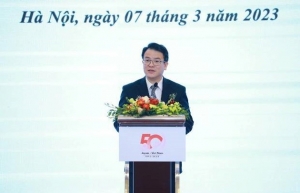
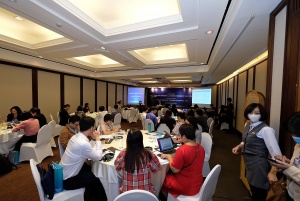
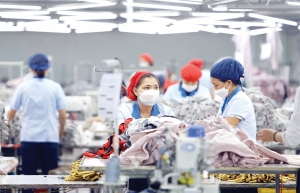
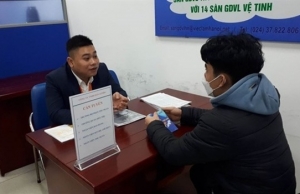






















 Mobile Version
Mobile Version